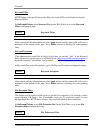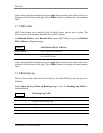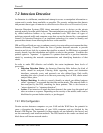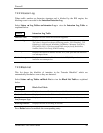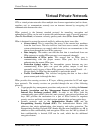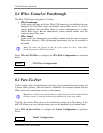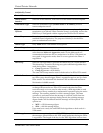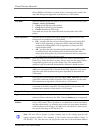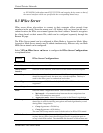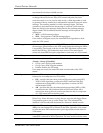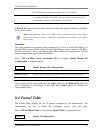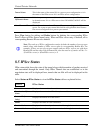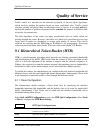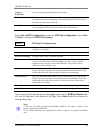
Virtual Private Network
Dlink DRO-210i User Guide 52
that of DES key and hence it is more secure. User must select exactly the
same IKE Encryption algorithm on both ends of a VPN tunnel.
Phase 2 Proposal
PFS Mode
Select the mode that will be used for IPSec Perfect Forward Secrecy (PFS).
(Group 1, Group 2, Disabled).
• Group 1 uses 768-bit prime number
• Group 2 uses 1024-bit prime number
• Disable disables the PFS mode.
User must use exactly the same PFS mode on both ends of the VPN
tunnel.
IPSec Operation
Select the IPSec transform that will be applied to packets that are sent
between the two endpoints of a VPN tunnel.
• ESP - specifies that the entire packet will be encrypted (using DES,
3DES or AES algorithm, as selected in ESP Transform field) and
authenticated (using MD5 or SHA algorithm, as selected in ESP
Authentication field).
• AH - specifies that only the authentication algorithm (MD5 or SHA,
as selected in the AH transform field) will be used. When AH is
selected, the data portion of packets sent between the two endpoints
of a VPN tunnel will not be encrypted.
IPSec Life Duration
Enter the IPSec Life Duration (in seconds). It is used for life duration of
Phase 2 key. When this timer expires, the two peers should trigger Phase
2 negotiation again to set up a new Phase 2 key. The minimum life
duration is 180 seconds and maximum life duration is 86400 seconds.
ESP Transform
Select the ESP transform encryption algorithm (Null, DES, 3DES and
AES) to be used when ESP is selected as the IPSec Operation. User must
select the same ESP transform encryption algorithm on both ends of a
VPN tunnel.
ESP Auth
Select the ESP authentication algorithm (Null, MD5, and SHA) to be used
when ESP is selected as IPSec Operation. The user needs to use the same
ESP authentication algorithm on both ends of a VPN tunnel.
AH Transform
Select the AH authentication algorithm (MD5, SHA) to be used when AH
is selected as the IPSec Operation. The user needs to use the same AH
authentication method on both ends of a VPN tunnel.
Target Host Range
Type
Select the type of network definition for the range of IP addresses on the
remote LAN that will access the VPN. Only the Subnet type is supported.
Target Network
Address
Enter IP address range of the remote host machines that can be accessible
from a VPN tunnel. This is specified as a combination of network address
and the subnet mask. e.g. when the user needs to access remote machines
with IP address in the range of 192.168.20.1 to 192.168.20.16 , then he/she
can specify this range as 192.168.20.1/28.
Note: The user has to specify a proper routing entry in the routing page for the
remote network address. For example, if the remote network address range is
192.168.20.1 / 28 , then the user can specify the route entry with destination address



